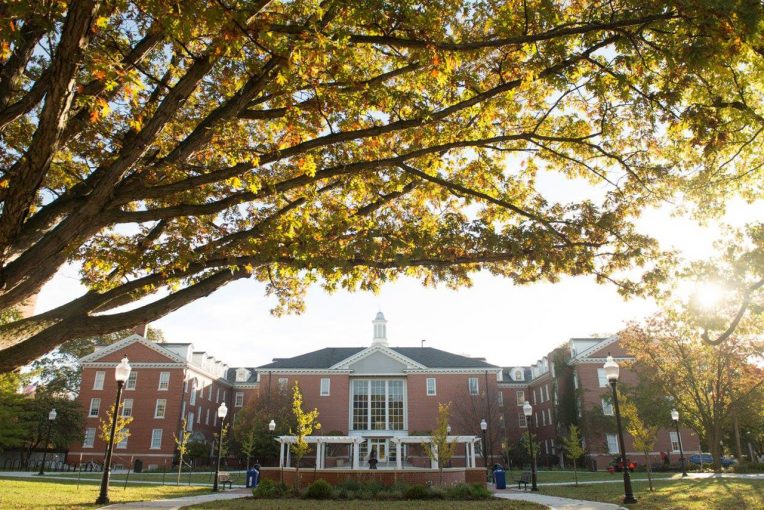In March 2020 Illinois State and the rest of the world came to a standstill. The novel Coronavirus (COVID-19) had begun its course throughout the United States, and life was beginning to look very different. Masks became a part of our everyday fashion, quarantine became a frequent activity that we participated in, and millions of loved ones were affected. In the fall of 2020 we applauded how RSOs in the School of Communication combated the challenges that came along with COVID-19. Where do we go from here?
The School of Communication (COM) at Illinois State University has adapted very well the past few semesters. Transferring all classes to a virtual setting was a daunting task that faculty and staff not only conquered but mastered. Dr. Steve Hunt, executive director and professor for COM, talked about the initial shock and planning that went into the switch to virtual class but also about the plans for a hopeful future.

Hunt described his main responsibility was to “keep going and keep things going.” This was difficult to do during the abrupt transition of spring semester 2020. Plans were made for the possibility of faculty members getting sick and not being able to teach and figuring out what technologies were going to best work.
“There was so much behind the scenes planning every day,” Hunt said. “But you prepare for one contingency and then a week later everything changes and what you once prepared for is not going to happen, and we needed a totally new plan. We just had to try our best to keep things on track and made sure that we were still moving forward.”
Despite all of the difficulties that the pandemic has brought to Illinois State and the world, COM hopes to grow with new technologies, abilities, and persistence. Online tools such as Zoom and Google Classroom helped universities and businesses around the world continue day-to-day tasks and create new ways of operation. Hunt talked about the potential that these adaptations and technologies have created,
“I can see the continued use of these technologies,” Hunst said. “We now know how to function remotely, and we have the technology to facilitate that and make that happen. I don’t think it’s going to go away. I don’t think we’re going to, you know, hit a switch and then everything’s back to face-to-face and nobody’s ever using Zoom or any of these technologies. I think our faculty are much more adapted now, which opens the door to potential opportunities.”
Hunt said there is a lot to look forward to in the department.
“I think we are in really good shape to welcome students back in the fall,” Hunt said. “Every classroom on the first floor of Fell Hall is being remodeled with all new carpet, new paint, and new, more comfortable desks for students. That work has already begun, and we are excited about that. I feel like there is a light at the end of the tunnel now.”
With the rollout of multiple vaccines, Hunt said he believes that once fall comes, the department will be ready and prepared to thrive.
“Our students are just itching and ready to go and take advantage of all the opportunities,” he said. “Our faculty are excited, and I know our alumni are fired up. With that being said, once we get past this and once we get people back to campus, we are just going to hit the ground running in the fall.”

